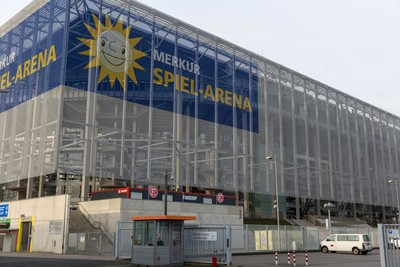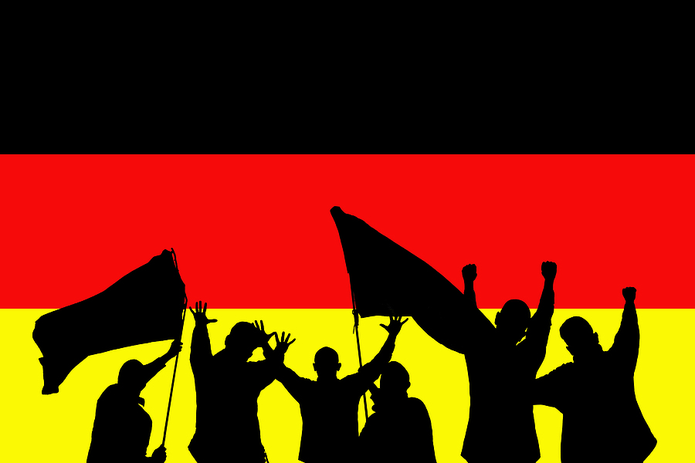
You have to hand it to them: Fortuna Dusseldorf are making a bold, contrarian play.
The German football club is planning to make tickets to all its home games free of charge within five years via its ‘Fortuna for All’ scheme, and will get the ball rolling by handing fans three free tickets during the 2023/24 season.
Fanciful? Absolutely. Could it work? Maybe, just maybe.
The senior bosses at Dusseldorf have come up with what they believe to be a workable business model, although the jury is out on whether their system is a fantastic initiative designed to hand the beautiful game back to the people – or a flight of fancy that could end in financial ruin.
“This is a fundamental change of a business model of a professional football club,” said Fortuna’s CEO, Alexander Jobst.
“We said, let’s think completely new and let’s have the courage of identifying something which is fitting for our club and city, with the strong belief that our club belongs to our fans.
“Football is for everyone and we believe that something could be changed for the future.”
Power to the People

It’s important to note that German football clubs have a different ownership model than many of their counterparts around the world.
They utilise the 50+1 rule, which dictates that the majority of the club’s voting rights are fan-owned – ensuring that supporters can block takeovers by overseas entities and prevent senior officials from implementing bizarre changes like altering club colours and badge designs.
It also means they are more likely to be receptive to proposals such as free tickets, whereas other clubs – such as those in the Premier League, that are governed by shareholder value or commercial interests – might be rather less forthcoming.
Fortuna believe it will cost them around £40 million to essentially let fans in for free, which is a profit hit they intend to cover by seeking new sponsorship opportunities. They have already been able to recoup that money thanks to deals with Hewlett Packard, Targobank and Provinzial.
It’s interesting too that the Dusseldorf outfit generally get home attendances of around 28,000. Free tickets would certainly help them to fill their 54,000 Merkur Spiel-Arena home, but could a club like Manchester United or Tottenham financially justify allowing 60,000+ fans in for free?
Those in and around the club are speaking bullishly about the project, and it’s certainly a brave stance from Fortuna to act as a guinea pig for such an out-there idea.
“It is a unique concept for football and I am confident it will take Fortuna forward,” so said the Mayor of Dusseldorf, Stephan Keller.
“You can feel that something new starts today … that could ignite a potential revolution in football.”
How Much Do Football Clubs Make from Ticket Sales?

We can do some pretty basic maths to work out how much a football club makes from ticket sales.
Let’s take Arsenal, where the average matchday ticket cost (some are cheaper, some more expensive) is around £50. The Emirates Stadium holds around 60,000 fans, with about 3,000 of that capacity held over for away supporters.
So, if we multiply 50 by 57,000, we conclude that Arsenal make around £2.85 million per home game. Times that by 19 for their Premier League allocation – while remembering other competitions like the FA Cup and continental action – and you get a sense of just how much money a Premier League club will generate from matchday revenue.
Of course, this isn’t all profit – some of it will be reinvested to pay for staff, energy bills and the like, but to lose this revenue would be a major loss for a club of any salt.
Now consider the ramifications for lower league clubs. The third tier and below of English football was canned altogether during the health crisis, for the simple reason that fans could not attend matches. Without that revenue, outfits outside of the elite simply don’t have the means to survive.
Matchday profits are the third highest income stream that a football club has, behind TV deals and commercial partnerships, so losing that would be a devastating blow lower down the football pyramid. Manchester United are batting away big-money offers from businesses to sponsor them, but are a Carlisle United or a Tranmere Rovers?
At the elite level, a free ticket system could work – if the clubs really wanted it to. But lower down the ecosystem, such a concept would lead to insurmountable financial wreckage.
Football belongs to the fans, or at least it should. But free tickets? For the most part, it would be a catastrophe.